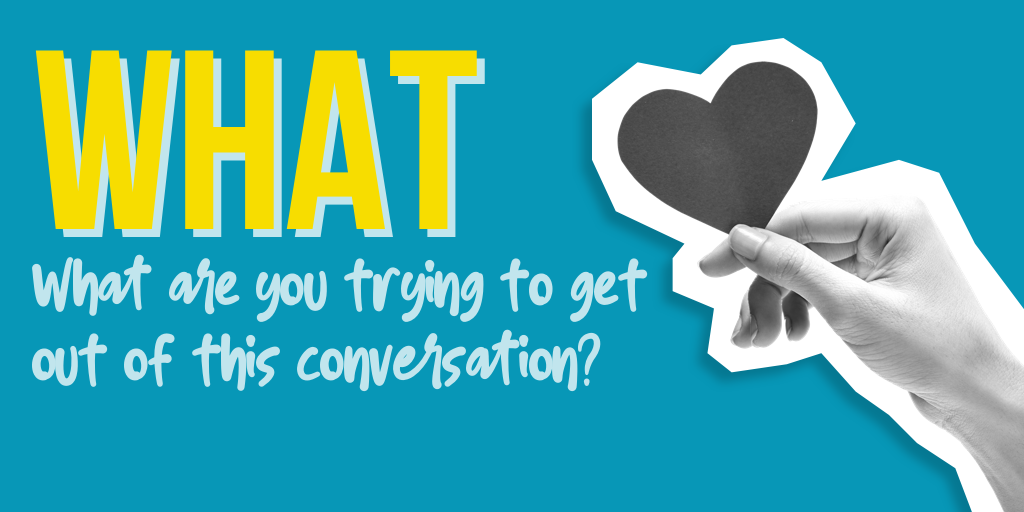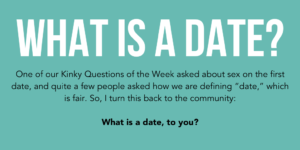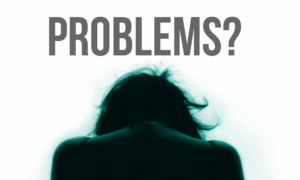That’s always a question I ask myself before starting a “relationship” conversation, or, if I fail at that, not long after.
To me, this is a critical part of my successful communication.
Let’s back up.
Two weeks ago, I wrote that communication is not a solution. That it is a tool. And tools can be used for good or for ill. I outlined the idea that in a relationship your priorities, openness, respect, compassion, and autonomy—which are all ultimately your compatibility—is the solution.
That communication is simply a tool to share that compatibility (or show that it doesn’t exist).
And today, I’m starting with priorities.
There are two levels of priorities that matter to communication in a relationships.
There are your overall priorities in the relationship.
Hopefully, you have these in order, because these are the foundation of your relationship. You’ve talked about these, and have agreed that the two of you are (for now, anyway) heading in the same direction.
There are your priorities in this conversation.
Because what you want in this moment will make a HUGE difference in how and what you communicate.
Let’s look at these more closely.
There are your overall priorities in the relationship.
These contribute to your ultimate compatibility.
- Do you want a casual relationship?
- Do you want commitment?
- Kids?
- A dog?
- Adventure?
- Love?
- Sex?
- Kink?
And so on.
Obviously, if one of you is in this for now, and the other is trying to build a long-term relationship, there are going to be some pretty major incompatibility issues in the relationships itself. And communications is going to highlight those issues, rather than fix them.
Now, let me be clear, to me, this is a good thing.
I’d rather know about incompatibilities than feel blissful in ignorance.
If I’m looking for casual, and someone else is definitely looking for a life mate, well, we’re going to have very different ideas about how the relationship should unfold, and I would guess they would be pretty damned disappointed by quite a few of my choices.
And the obverse is true.
What I look for people when I’m seeking a life mate is different than what I look for an tolerate in people who I hope to enjoy a casual connection from, and those looking for casual will not measure up, because they choices they make about investment in the relationship won’t suit me at that time.
And communication will make that clear to both of us, hopefully.
If we are both honest, and open to hearing what the other has to say.
And then, regardless of our priorities in the relationship matching, communication can be thwarted by our more temporary priorities…
There are your priorities in this conversation.
Right now.
What are you trying to get out of this conversation?
Because we may want to grow old together, because we love each other very much, but if one of us wants to solve this major problem right now, and the other wants to go to sleep, our communication is likely to fail.
If one of us wants to be open and vulnerable, and the other wants to get it over with so they can watch ‘The Bachelorette,’ our communication is likely to fail.
So, what might we want right now, from the conversation we are about to have (or ARE having)?
- I want to make clear my thoughts and feel understood.
- I want to apologize.
- I want to ask questions and understand my partner.
- I want to feel closer to my partner.
- I want to make my partner happy.
- I want to work together to find a potential solution.
Versus:
- I want to feel right.
- I want to punish my partner.
- I want to make my partner feel guilty.
- I want to work out my frustration.
- I want to feel vindicated.
- I want to get my way.
Looking at those two sets of wants, I’m guessing you can imagine how a conversation might feel radically different with a desire to make my partner happy versus a desire to make my partner feel guilty.
Sure.
Easy.
But.
BUT…let’s be real. How often have you started a conversation trying to apologize (for example), but really wanting to feel right? And the conversation did not go well, and you ended up fighting…
It happens to all of us.
Because we apologize, but we really want to feel right, so we also explain ourselves. Over and over, trying to make clear that we were RIGHT, even if we did it wrong, or whatever.
And we fail at actually apologizing.
Because our priority was to feel right. And the apology was just the starting point of the conversation.
What if we really wanted to apologize?
We’d say, “I’m sorry, how can I make this up to you?” then STFU and listen, ask questions to understand, and then do whatever was in our power to do those things.
Sometimes we apologize to make things go away (to get our way). So, we lead with “I’m sorry,” and then pretty much expect everything to just be better now that we said the magic words.
We can now watch the new episodes of ‘Stranger Things,’ get to sleep, or have the wild sex that this conversation got in the way of.
Our priorities will influence what we say, how we say it, and what we focus on in the conversation.
And those things in turn will influence how our communication partner understands (or misunderstands) what we are trying to say.
Which all adds up to whether we have a successful conversation or not.
A few thought exercises:
Consider what you might say, how you might say it, and what you might focus on in a conversation in the following scenarios:
A. It’s about 5 minute before your guests arrive for dinner, and something has been bothering you all day. You want to say it before everyone arrives. It’s important to you that you clear your thoughts and feel understood. What would this look like to you?
How would it look different if you wanted to work out your frustration, instead?
B. Your partner did something at a party this evening that hurt and humiliated you. Now, in the car ride home, you have a captive audience in the car, and you want to take out your frustration. What would that look like to you?
How would it look different if you wanted to just ask some questions and understand where your partner was coming from when they said those things?
How would it look different if you just wanted to get your way?
C. Over the past few weeks, you’ve come to the realization that you and your partner want radically different things for something important in your life. Thing is, you love your partner dearly, and you really want to find a way for both of you to live your best life, so you want to take some time to work together to find a potential solution. What would that look like?
What are your thoughts?
Have you ever actually really thought about your priorities in a conversation before beginning?
Have you ever found that maybe you really wanted something else from a conversation (like to be right) than you thought going in (like to apologize)? How did that go? How did you handle it?
Can you see how your priorities can change the whole experience of a conversation for you and your partner?








